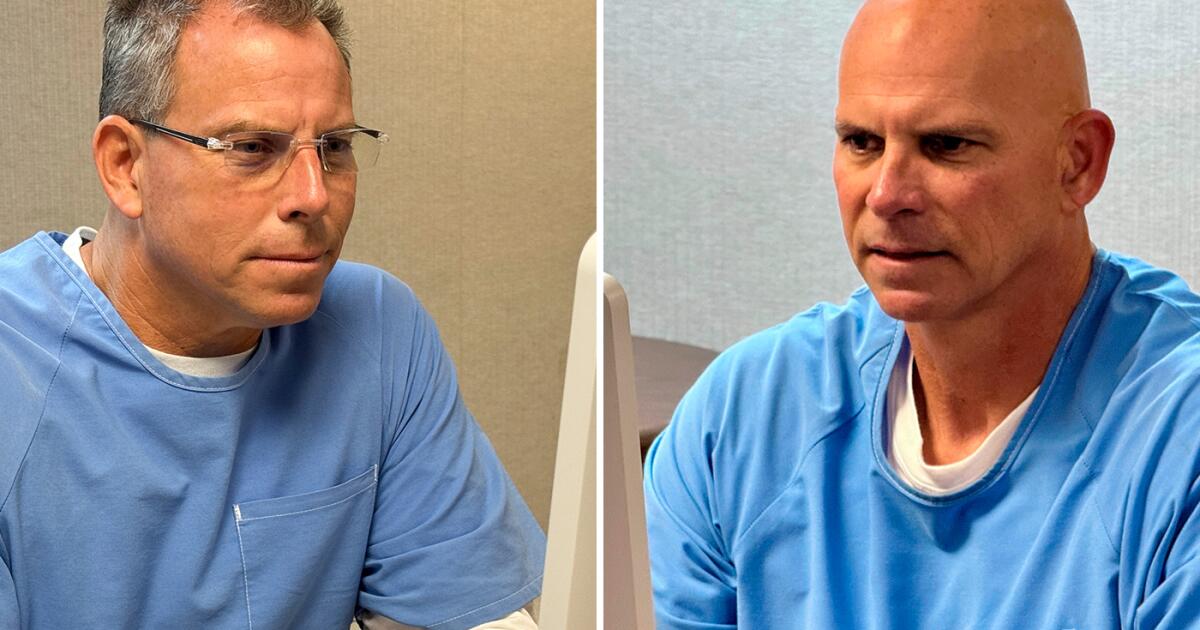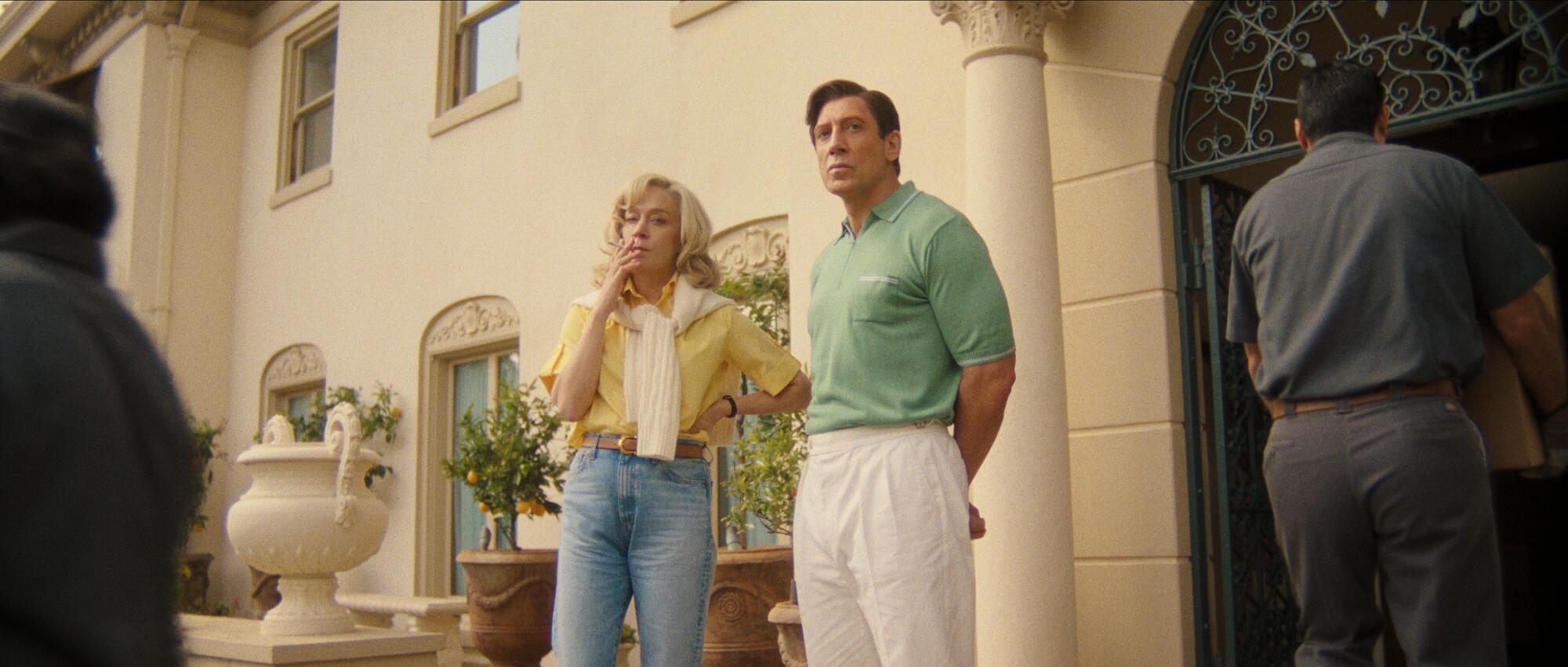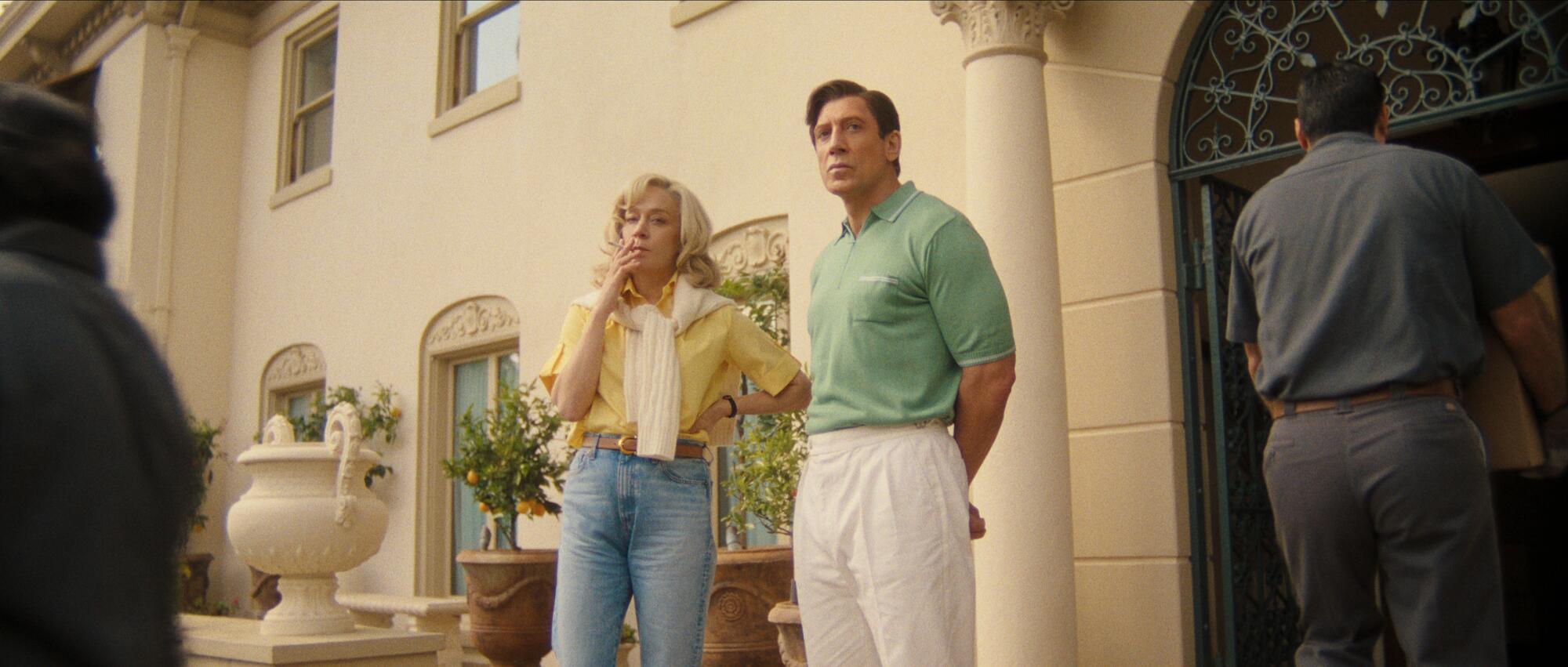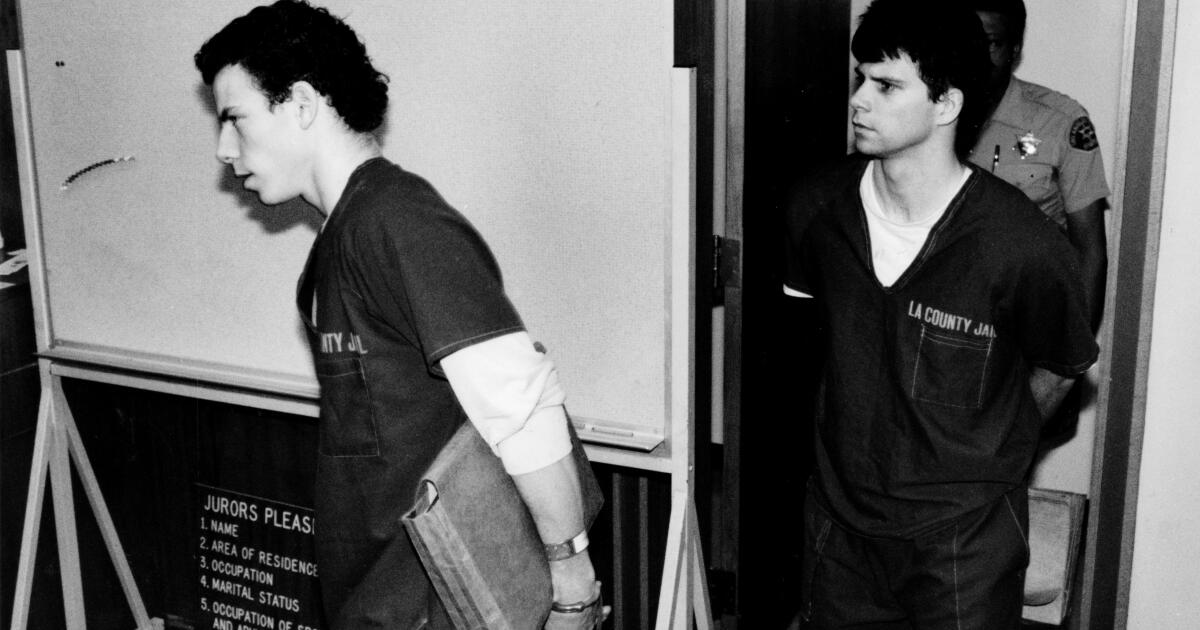Unexpected release of audio file causes Menendez parole hearing drama
Access to the parole hearings this week for brothers Erik and Lyle Menendez was tightly controlled by state prison officials, but despite the efforts to limit outside interference and drama, the unexpected release of an audio recording nearly derailed Friday’s proceeding.
The disclosure of an audio recording of Erik’s parole hearing, held Thursday, tossed his older brother Lyle’s hearing into disarray the following evening.
The closely watched hearings gave the Menendez brothers a chance at freedom for the first time since they were convicted and sentenced to life in prison for the 1989 shotgun killings of their parents in Beverly Hills.
The state parole board denied a petition from Erik, 54, after an all-day session Thursday. Updates to the news media were provided by a Times reporter who was selected to observe the hearings from a conference room at California Department of Corrections Rehabilitation headquarters near Sacramento.
Audio recording of the hearing was forbidden except by state prison officials. Media organizations were prohibited from disseminating any information in so-called pool reports from the Times reporter until after the parole board issued its decision.
The same restrictions applied to Lyle’s hearing on Friday, which also ran long. But as the hearing came to a close, news broke that created a complication.
TV station ABC7 published a recording of Erik’s hearing, which apparently had been inadvertently handed over in response to a public records request.
A corrections department spokesperson confirmed the audio had been “erroneously” released, but did not elaborate or respond to additional questions from The Times.
The news report brought the hearing to a temporary halt, sparking anger, frustration and accusations that prison officials had purposely released the recording to cause a “spectacle.”
“This is disgusting,” said Tiffani Lucero Pastor, one of the brothers’ relatives who at one point screamed at the members of the parole board. “You’ve misled the family, and now to compound matters, you’ve violated this family and their rights.”
Heidi Rummel, parole attorney for both Erik and Lyle Menendez, asked for a break during the already nine hours long hearing, and at one point asked that the meeting be adjourned, arguing that it was no longer a fair hearing because of the audio’s release.
“We are sitting here asking Mr. Menendez to follow rules,” she said during the hearing. “And in the middle of this hearing, we find out CDCR is not following its own rules. It’s outrageous.”
The fate of Lyle, 57, had not yet been decided, but the board had denied Erik’s release after questioning him extensively about his use of contraband cellphones and other violations of prison rules.
“I don’t think you can possibly understand the emotion of what this family is experiencing,” Rummel said. “They have spent so much time trying to protect their privacy and dignity.”
The Menendez brothers first saw a chance at parole after Los Angeles County Dist. Atty. George Gascón petitioned a judge to have their sentences reduced to 50 years in prison.
The move made them eligible for parole, but new Dist. Atty. Nathan Hochman moved to oppose the petition after he defeated Gascón in the November election. L.A. County Superior Court Judge Michael Jesic denied Hochman’s request and found that prosecutors failed to show that the Menendez brothers were a danger to the public, clearing their path to the parole board.
The case, and the brothers’ petitions, has continued to generate nationwide attention, including a social media effort that pushed to have the Menendez brothers released in light of allegations the two were sexually abused by their father.
With the case already under a microscope, the release of the audio file created yet another roller coaster of speculation and doubt.
Parole Commissioner Julie Garland said that audio of the hearings could be released under the California Public Records Act, and that transcripts of the parole hearings usually become public 30 days after a decision is issued, under state law.
Rummel noted during the hearing that, as a parole attorney, she had requested audio of parole hearings in the past but the requests had been denied.
“It’s highly unusual,” she said during the hearing Friday. “It’s another attempt to make this a public spectacle.”
Rummel had objected to media access to the hearing, and implied at one point that media access had led to a “leak.”
Rummel did not immediately respond to a request for comment.
“It’s unacceptable,” said Maya Emig, an attorney representing Joan Vandermolen, Kitty Menendez’s sister. “There has to be notice given.”
Rummel asked whether the board also planned to release the audio of Lyle Menendez’s hearing.
“What policy allows for this to happen in this hearing but literally no other hearing?” Rummel asked the board. “It’s never been done.”
At one point, Rummel said she would be looking to seal the transcript of the hearing under Marsy’s Law, which provides rights and protections to victims of crimes.
Garland stated that audio from Friday’s hearing would not be released publicly until Rummel had the opportunity to object in court or contest its release.
Shortly after, Rummel said several relatives of the brothers had decided not to testify because of the release of the audio.
“It’s my impression from the family members that that’s not enough of an assurance,” she said.
The two-member parole board ultimately decided the audio incident would not deter them from making a ruling late Friday evening. They rejected Lyle’s request.
Both brothers will be eligible for parole in three years, but they can petition for an earlier hearing in one year.




